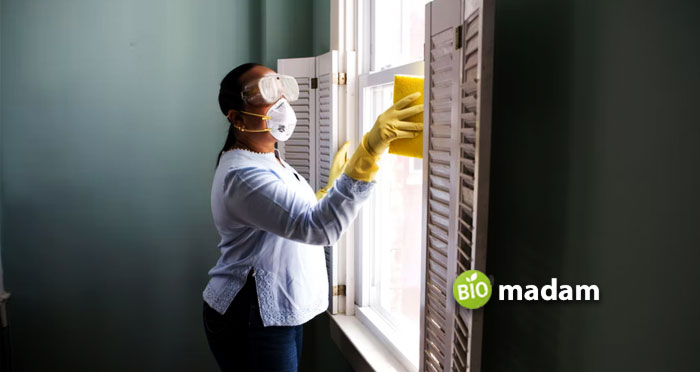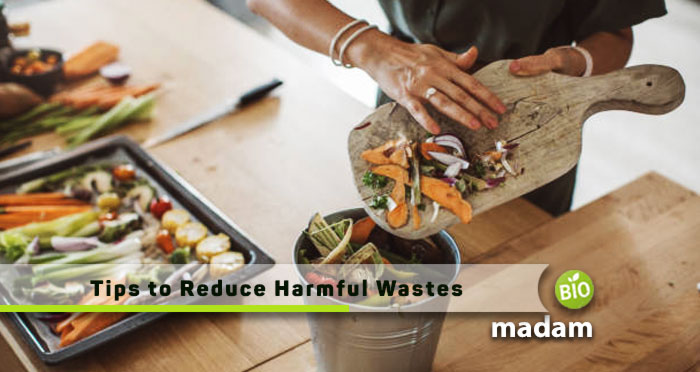Every time you do the dishes, wash the laundry, and do other daily chores, you are adding harmful wastes to the environment and harming our planet. But there are many ways that you can reduce this by using less water, a dishwasher, and the right detergent and chemicals for your needs. This is just one of many tips to help you live a more environmentally conscious lifestyle and make a difference in reducing harmful wastes from your daily household chores.
Laundry Waste
Washing your clothes can use a lot of water and energy, so try to wash full loads instead of smaller loads. You can also save energy by using the cold water cycle on your washer. Another way to save laundry energy is to air dry your clothes whenever possible. You can also use tru.earth laundry strips that dissolve in the wash and break down the dirt and oil left on clothes, which reduces the amount of detergent needed. Another great option includes using an eco-friendly laundry detergent.
Regular VS Eco-Friendly Laundry Detergent
There are many types of eco-friendly laundry detergents on the market. Some use organic ingredients, while others rely on more environmentally friendly formulas. But what all of these detergents have in common is that they’re designed to be gentle on clothes and the environment. Regular detergent, on the other hand, is made with harsh chemicals that can damage fabrics over time. It also releases harmful pollutants into the air, which can be dangerous for both people and pets.
By using eco-friendly laundry detergent, you can reduce the amount of harmful waste produced by your household chores. Eco-friendly laundry detergents come in both liquid and powder form. To get the best results, follow the instructions on the label. Most detergents require hot water for optimal performance, so be sure to use the highest setting on your washing machine. You may also need to use more soap than you’re used to, as these detergents are less concentrated than traditional brands. But don’t worry – a little bit goes a long way!
Cleaning Chemical Waste
When cleaning your home, you should avoid using harsh chemicals wherever possible. Many harsh chemicals are harmful to both humans and the environment. There are many eco-friendly alternatives to harsh chemicals, so try to use them whenever you can. If you do need to use a chemical cleaner, be sure to read the label and use it only as directed. Pledge EC-Away is an environmentally friendly all-purpose cleaner that can be used on most surfaces. It’s made with plant-based ingredients and contains no harsh chemicals or solvents. Another great option is Mrs. Meyer’s Clean Day Multi-Surface Spray, which is made with essential oils and non-toxic ingredients. These cleaners are safe for both people and pets, and they won’t harm the ecosystem.
Glass Cleaners

Window cleaners are another source of harmful chemical waste. Many window cleaners contain ammonia, which can be harmful to both humans and the environment. Eco-friendly alternatives to ammonia-based window cleaners include vinegar and water or window cleaner made with natural ingredients. These cleaners are safe for people and pets, and they won’t harm the environment. You can make your window cleaner by mixing vinegar and water in a spray bottle. For a more powerful cleaner, add a few drops of dish soap to the mixture. You can also use one that is made with essential oils.
Kitchen Waste
When it comes to dishwashing, you can save both water and energy by using a dishwasher. If you don’t have a dishwasher, try washing dishes in a basin or sink with soapy water, then rinsing them off in clean water. You can also avoid using harsh chemicals and detergents when cleaning dishes by using baking soda and vinegar as natural cleansers.
Dishwashing Waste
Dishwashing can use a lot of water, so try to use a dishwasher whenever possible. If you must hand wash dishes, fill up the sink with water instead of running the faucet constantly. You can also save water by using a dishrag instead of paper towels. When choosing dishwashing detergent, be sure to choose one that is eco-friendly and biodegradable. Also, be sure to rinse dishes and utensils thoroughly before putting them in the dishwasher or sink. This will help prevent the build-up of food and grease, which can lead to harmful wastes.
Waste When Cleaning the Backyard
If you have a backyard, you’re probably familiar with the chore of cleaning it. This can be a daunting task, but there are many ways to make it easier and less harmful. One way is to use eco-friendly cleaners and detergents. Another is to use less water. Instead of hosing down the entire yard, try using a broom or leaf blower to clean off debris. You can also save water by watering plants only when necessary and using a rain barrel to collect rainwater. Also, consider using a compost bin to recycle yard waste. This will help reduce the amount of waste that goes into landfills.
The Benefits of Composting

Composting is the process of recycling organic materials into compost. This can be done with yard waste, food scraps, and other organic materials. Composting is a great way to reduce the amount of waste that goes into landfills, and it’s also good for the environment. When composted properly, organic materials can break down and return nutrients to the soil. This helps improve soil quality and helps plants grow better.
Composting is also a great way to save money on fertilizer. There are many benefits to composting, so if you have the time and space, consider setting up a compost bin in your backyard. It’s a great way to recycle organic materials and help the environment. You can also utilize composting in your bathroom. How? Well, your toilet can become a composting toilet. To do this, you need to install a composting toilet system and use a carbon-based absorbent material to reduce odor. This is a great way to recycle human waste and reduce the amount of waste that goes into landfills.
There are many ways to reduce harmful waste from your daily household chores. By using eco-friendly laundry detergent, cleaning chemicals, and dishwashing detergent, you can help protect the environment and keep your home clean and healthy.

Hi, they call me Jenna, and I am also known for achieving a gold medal during my Ph.D. in science life. I always had a dream to educate people through my utmost writing hobby. So, I chose this blogging path, and Biomadam gave me this opportunity to present for them. I now stand to entertain you. Continue reading my articles & discuss if you’ve any confusion through the comment section below.

